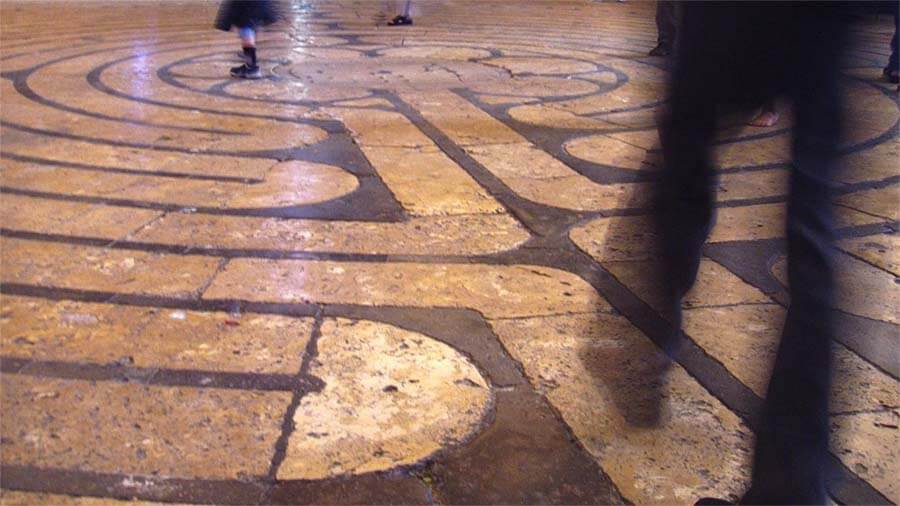Three years after launching Sacred Ground, a dialogue series on race, racism, and whiteness with more than 20,000 participants thus far, The Episcopal Church’s Racial Reconciliation and Justice Team is releasing a comprehensive evaluation report, updated curriculum and resources, and expanded licensing that invites people in other denominations/faiths to start their own Sacred Ground circles.
“Everywhere I travel, people are bursting to tell me about the transformational impact Sacred Ground has had in their lives,” said Episcopal Church Presiding Bishop Michael Curry. “The Lord is building Beloved Community through this movement, and in its updated and expanded form, Sacred Ground will help many thousands more take the next steps in the lifelong work of racial healing.”
Take action on racial justice, not just preach about it
In partnership with the Union of Black Episcopalians, Sacred Ground worked with Christina Pacheco of Indígena Consulting Inc. in 2021 to conduct surveys and focus groups with more than 2,900 participants, facilitators, and organizers of the film- and readings-based series that includes circle groups throughout the U.S. (84 dioceses were represented among survey respondents).
The resulting 63-page report is designed to help Sacred Ground facilitators, organizers, and churchwide staff discover what they can do to create the best outcomes for circles. It includes a detailed breakdown of questions and results, charts, graphs, and numerous quotes from respondents.
Among other findings, the survey showed overwhelmingly that Sacred Ground has had a powerful impact on participants’ knowledge, attitudes, and emotional capacity. It has prompted action such as initiating “racial reckoning” conversations in one’s family, supporting Black businesses, holding listening sessions with Indigenous people, and joining county-level policing accountability projects. The survey also reflected a desire for more guidance in this area.
“It has helped us take action on racial justice, not just preach about it,” a Sacred Ground organizer is quoted as saying in the evaluation report.
While the program was especially designed to help White people talk with each other about race, the survey showed that participants of color also found the experience valuable for their own learning and transformation.
Updates to Sacred Ground
These and other survey results—as well as a curriculum review by volunteers, consultants, and advisors—informed changes, updates, and additions to the Sacred Ground program that include the following:
- A list of best practices for organizing and facilitating Sacred Ground circles, including a recommendation for more interracial circles.
- “We Bless You,” a 22-minute invitational video produced collaboratively with the Union of Black Episcopalians that speaks to those discerning whether to participate in a circle, and whether to form a White or interracial circle.
- A revised session 10 and new session 11 to help address the desire for help in moving from reflection to action.
- Curriculum additions, such as some related to the history of Indigenous boarding schools.
- Higher visibility of theological reflections in the program.
- Deeper Dive, a list of supplementary videos and readings for those who want to go further in their learning and exploration.
In addition to the updated curriculum, Sacred Ground’s three-year licenses for videos and readings have been renewed, with an expansion for other local-level faith groups that would like to offer the program without direct Episcopal Church involvement.
One Sacred Ground facilitator is quoted in the report as saying: “Thank you. However painful it is to see what our country has done wrong, I am glad to have become informed of the truth. I hope everyone can have access to this program.”
Learn more about Sacred Ground and how to start a circle.
Sacred Ground
Sacred Ground is a film- and readings-based dialogue series on race, grounded in faith. Small groups are invited to walk through chapters of America’s history of race and racism, while weaving in threads of family story, economic class, and political and regional identity.
The 11-part series is built around a powerful online curriculum of documentary films and readings that focus on Indigenous, Black, Latino, and Asian/Pacific American histories as they intersect with European American histories.
Sacred Ground is part of Becoming Beloved Community, The Episcopal Church’s long-term commitment to racial healing, reconciliation, and justice in our personal lives, our ministries, and our society. This series is open to all, and especially designed to help white people talk with other white people. Participants are invited to peel away the layers that have contributed to the challenges and divides of the present day – all while grounded in our call to faith, hope and love.

Public Affairs Office of the Episcopal Church
The Public Affairs Office provides statistics, biographies, photos, background information, and other resources to media representatives reporting on the mission and ministries of The Episcopal Church.
This press release from Episcopal Church’s ‘Sacred Ground’ releases report, updated curriculum.
Church of the Redeemer
Welcome to Church of the Redeemer: Worshiping God, living in community, and reaching out to the world. We are an Episcopal Church serving north King County and south Snohomish County, Washington. As you travel your road, go with friends walking the way of Jesus at Redeemer.
Church of the Redeemer is at 6210 Northeast 181st Street in Kenmore, Washington. We are a short distance north of Bothell Way, near the Burke-Gilman Trail. The entrance looks like a gravel driveway. The campus is larger on the inside than it is on the outside. And we managed to hide a large building on the side of a hill that is not easily seen from the street.
The Episcopal Church welcomes you.





